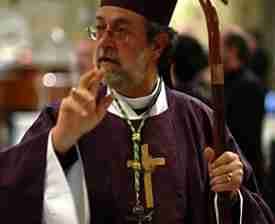I grew up in a liturgical church, and every year we dealt with Lent. We didn’t do the distribution of Ashes on Ash Wednesday until I was older, and then it was optional. Some people in the Church saw the distribution of Ashes as “Roman Catholic” and hence suspect, so my Pastor had to introduce it slowly. But we did do fasting, or what I knew as a youngster as “giving something up for Lent.” We also refrained from eating meat on Fridays, which we did every Friday during the year.

Friday was Pizza Day – we had it for lunch at school and then again when we came home for dinner. (Meatless pizza). I didn’t understand it as fasting to help us recall the crucifixion of Jesus and his love for us. It was just Pizza night and not very sacrificial because I loved pizza, especially the thin-crust style of pizza made in the Philadelphia area. During Lent, Wednesday became another “meatless day,” and my mother served “Mrs. Paul’s Fish Sticks.” This is a meal that turned an entire generation against eating fish. On top of Pizza Day and Fish Stick Wednesday, I was taught that “you had to give something up for Lent.” The rules were it had to be something “you liked,” and then you had to give it up for 40 days (not including Sunday, which was a “break”). The reason we did it? It is because we were Christians, and Christians fast during Lent.
Some other things happened during Lent. The big one was covering all the crosses (we didn’t have statues – again “catholic”) with what looked like the same material out of which wedding veils were made. For most of Lent, the processional cross and the cross on the altar were covered with a purple veil through which you could see the cross. I am not sure how it served the intent of “covering.” Then on Palm Sunday, the veil was red and remained during Holy Week. After that, the veil was black on Good Friday. Finally, on Easter, the veil was removed. All of it was great symbolism. I am not sure what the symbolism was, but it pointed out that Lent was a special season.
What was missing in all of it was any understanding of what Lent was all about, so I lacked an explanation of why we would want to do it in the world. To be fair, I am sure the Pastor told us the reason. I am sure I was not listening. But when I finally understood the reasons for Lent and the invitation “in the name of the Church, to the observance of a holy Lent, by self-examination and repentance; by prayer, fasting, and self-denial; and by reading and meditating on God’s Holy Word,” the season of 40 days became one of the highlights of my journey into Christ. Lent increased in so many ways the depth of my relationship with Christ Jesus and the reality of His death and resurrection not only then but now in my life and the world. It awakened in me that to be a follower of Christ was to participate in His life so that I would arrive at the point of being crucified with Him to share in His resurrection.
The recommendations for a Lenten discipline are disciplines that every Christian should practice every day of every year. Yet, it remains a good thing that we take a season to intensify these disciplines that we may grow spiritually and in our awareness of the forgiveness, mercy, and love of God that we find at the cross.
This season is not about “works” or “spiritual manipulation.” It is about responding to the desire of God to be in a relationship with us. I believe it is the Holy Spirit, speaking through the Church, that is calling us to His love because it is only when we know the height and depth of His love for us that we will be able to walk in what it means to be human and hence to love one another. It is only when we know how much we have been forgiven and the incredible grace of God that we will be able to forgive and do the ministry of reconciliation. We live in a very dark world of confusion, fear, anger, frustration, depression, chaos, hatred, and violence. Lent is a time to open ourselves to the light of Christ so that we can be that light. And, when we become light in the darkness, the darkness can no longer be dark. Healing will come. Reconciliation will come. Healing will come. Salvation will come. All in the Name of Jesus.
It all begins and ends in Christ Jesus and that He is in us, and we are in Him.
I call the ICCEC to a holy Lent. There is no promise of revival at the end of Lent. There is no guarantee of answered prayer. What is guaranteed is that we will have spent 40 days with the Holy Spirit leading us into the truth of Him, who is the One we can trust. That alone is worth everything.
God bless you on your Lenten Journey.
Under His mercy,
+Craig, Patriarch
This message was originally published in Sursum Corda, #1, 2022.
